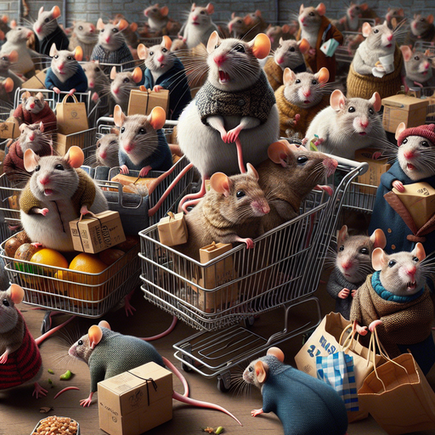“Brain Circuit in Mice Makes Them Seek Food Like It’s Black Friday”
So, apparently, researchers have discovered that mice have a brain circuit that makes them seek out food even when they’re not hungry. I mean, who would’ve thought that mice were just like us humans, constantly craving snacks even when we know we shouldn’t be eating?
These scientists focused on a specific group of cells in the brainstem’s periaqueductal gray area, which sounds like a fancy way of saying they were poking around in some mouse brains to see what makes them tick. And what they found was that these little rodents will go to great lengths to find food, even if they’ve just had a big meal. Talk about dedication to the snack game.
But here’s the kicker – they also found that the brain’s reward system can override hunger signals, leading these mice to keep munching away even when their stomachs are full. It’s like their brains are saying, “Hey, why stop now when there’s still more food to be had?” I can just picture these mice now, with their little brains sending them on a wild goose chase for more crumbs.
Now, before you start feeling sorry for these food-obsessed mice, just remember that this research could actually help us humans too. By understanding how this food-seeking circuit works, scientists may be able to develop new therapies to help those struggling with overeating and obesity. So, maybe these mice are onto something after all – they could be the key to solving our junk food addiction.
In the end, this study just goes to show that our brains are powerful little things, capable of making us do some pretty strange stuff. So next time you find yourself mindlessly snacking away, just remember that it’s not entirely your fault – blame it on your brain’s reward system. And maybe cut those mice some slack too – they’re just trying to survive in a world full of delicious temptations.
Image: 
Source: Neuroscience News
URL: https://neurosciencenews.com/pag-hunger-neuroscience-25781/

